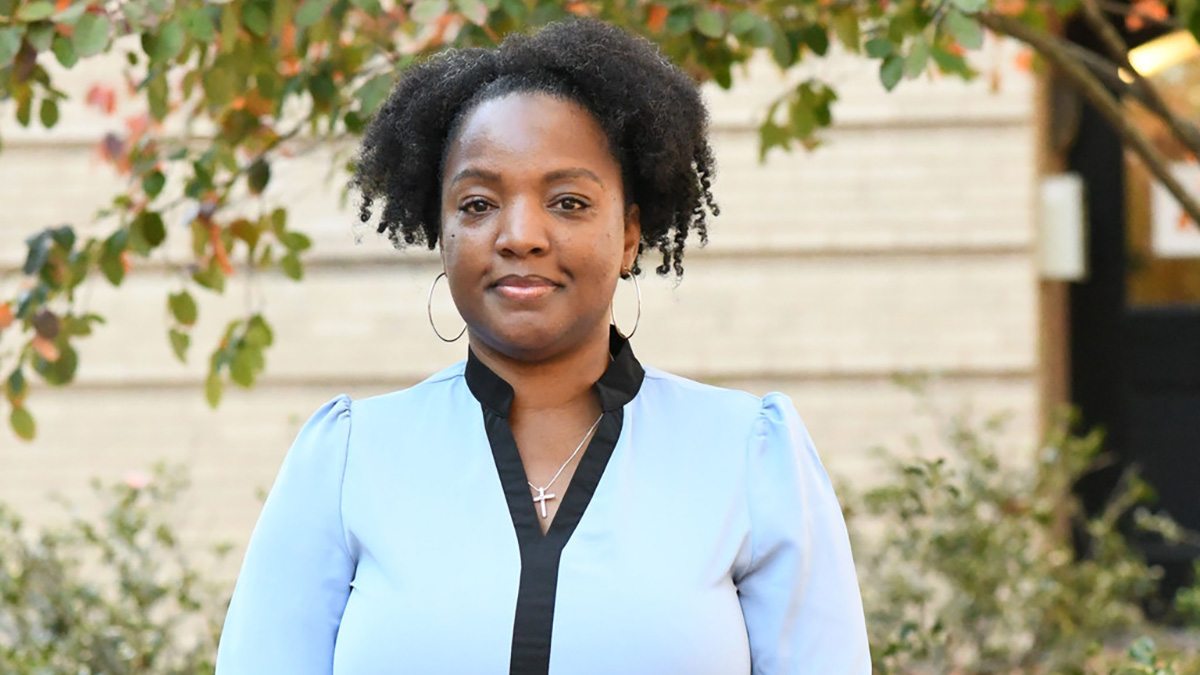‘Women who looked like me’
Ronice Johnson-Guy, a first-generation undergraduate and graduate student, joined The Graduate School’s Diversity and Student Success program to build community among students who come from a variety of life experiences and backgrounds.

As an aspiring first-generation college student in the late 1990s in New York, Ronice Johnson-Guy didn’t know where to start, so she went to a public library.
“I knew I wanted to go to a Black college,” she recalled. “I walked up to the librarian, and she gave me this big book that said ‘HBCU’ on the cover. I didn’t know what that was. The librarian was pretty much my college counselor.”
Ready to pursue her degree, to leave New York and a career in the corporate world, Johnson-Guy said she realized a degree would provide her with food, shelter, and upward mobility.
“School was the only avenue for me,” she said.
At 24 and as a non-traditional college student, Johnson-Guy knew she wanted to go to a women’s college. The librarian helped her research Bennett College in Greensboro, North Carolina—the only place where she applied and was later accepted.
“I knew nothing about financial aid; I knew nothing about the school. … But when I stepped foot on campus, I saw so many women who looked like me.”
She’s since spent her career in higher education — both in supporting study abroad opportunities and the international student experience. She joined The Graduate School’sDiversity and Student Successprogram as its assistant director in July 2022, where she supports efforts to build community among students who come from a variety of life experiences and backgrounds.
“I’m here fighting, working with them so they can be successful,” she said. “I’m really proud that I’m able to see that at work.”
Johnson-Guy is also pursuing a doctoral degree through the University of North Carolina at Wilmington in higher education leadership.
“This job allows me to put what I’m learning into practice,” she said. “I’m proud to be part of the work to help graduate students find their voice and be as candid as possible about their experiences.”
As a graduate student, she’s learning to build community among her cohort and among graduate students at Carolina.
“I really appreciate how we’re continuing to create different venues for students who feel like they might not belong at Carolina to know that they have the space to be here,” she said.
She has a perspective on her work and role at The Graduate School that’s enhanced by her own lived experience.
“I’m intentional now in terms of how I build my community. … I would go back and tell myself that this ride that I’m on is going to be well worth it.”




